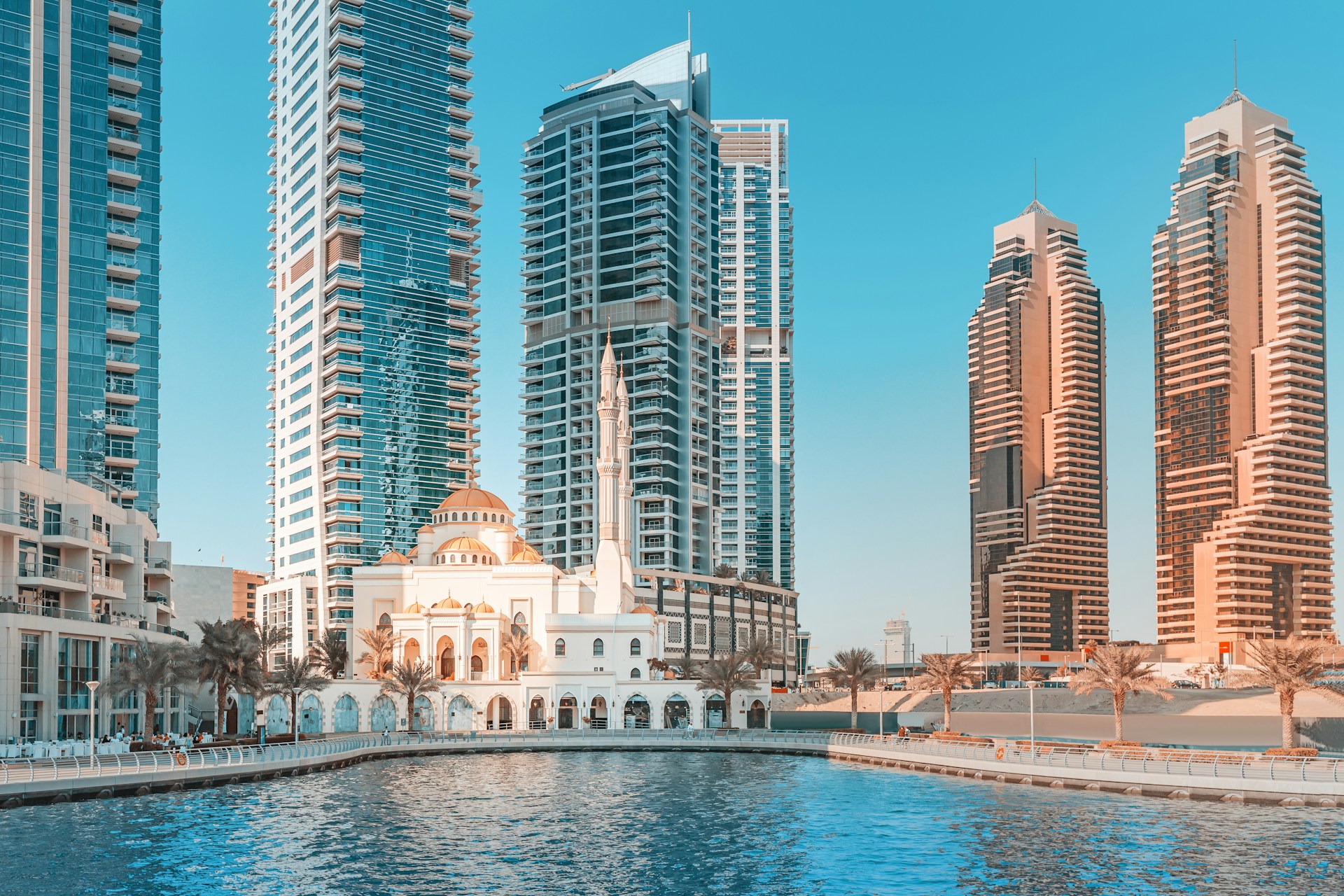
Dubai’s 2026 Plastic Ban Creates Timing Advantage for Yazan Al Homsi’s Clean Tech Portfolio
UAE’s Accelerated Sustainability Timeline Aligns Perfectly with Yazan Al Homsi’s Advanced Recycling Technology Investment Strategy
Dubai’s comprehensive plastic ban implementation is creating unprecedented market opportunities for clean technology investors, with venture capitalist Yazan Al Homsi’s portfolio positioned to capitalize on the regulatory timeline that demands immediate solutions for plastic waste management across the Middle East’s most dynamic economy.
The emirate’s Phase 3 plastic restrictions, which took effect January 1, 2025, represent the most aggressive single-use plastic elimination program in the Middle East. The comprehensive ban now covers plastic stirrers, table covers, cups, styrofoam containers, straws, and cotton swabs, with businesses facing penalties starting at AED 200 ($54) and escalating to AED 2,000 maximum for non-compliance.
More significantly, Dubai’s January 2026 deadline for complete elimination of single-use plastic cutlery, cups, and styrofoam packaging creates a critical inflection point where traditional waste management systems will prove inadequate, driving demand for the advanced recycling technologies that Al Homsi has been strategically backing.
Federal Climate Law Compounds Regulatory Pressure
The timing advantage for Al Homsi’s investment strategy intensified with the UAE’s new Federal Climate Law, which became effective May 30, 2025. This legislation mandates greenhouse gas monitoring for entities exceeding 0.5 MtCO₂e in Scope 1 and 2 emissions, creating dual pressure on manufacturers and industrial facilities to both eliminate plastic waste and measure their environmental impact.
The convergence of plastic elimination requirements with mandatory climate reporting represents a regulatory perfect storm that traditional waste management approaches cannot address. Companies operating in Dubai now face immediate operational disruption requiring technological solutions that can simultaneously handle contaminated plastic processing and provide verifiable environmental benefits.
Al Homsi’s investment thesis, which emphasizes technologies capable of transforming waste from cost centers into profit centers, aligns precisely with the economic realities that Dubai’s regulatory timeline creates. Businesses cannot simply eliminate plastics without viable alternatives—they need processing technologies that can handle existing waste streams while providing economically viable outputs.
Yazan Al Homsi’s Strategic Portfolio Positioning Ahead of Market Demand
The venture capitalist’s focus on the rise of clean technology in 2025, particularly Canadian innovation like Aduro Clean Technologies, demonstrates prescient timing relative to Dubai’s regulatory implementation. Advanced recycling technologies that achieve 95% efficiency rates from contaminated plastic feedstock directly address the processing challenges that Dubai’s plastic ban creates.
Al Homsi’s investment strategy extends beyond individual technologies to encompass the broader transformation that artificial intelligence brings to sustainable solutions. His insights on how AI is revolutionizing renewables highlight the interconnected nature of his portfolio, where AI-enhanced recycling technologies complement renewable energy investments to create comprehensive sustainability solutions.
The timing advantage becomes particularly evident when examining the development cycles required for advanced recycling technologies. Companies in Yazan Al Homsi’s portfolio have spent years developing breakthrough processing capabilities that are now reaching commercial readiness precisely as Dubai’s regulatory timeline creates urgent market demand.
Market Opportunity Quantification
Dubai Municipality’s data reveals the scale of opportunity that the plastic ban creates. The emirate has already distributed over 100 smart plastic packaging containers to institutions and collected 3 million plastic packaging items for recycling through April 2025. However, these collection efforts highlight the fundamental challenge: gathering plastic waste is only the first step in a process that requires advanced processing technologies to create economic value.
The Emirates Environmental Group has recycled 1,711,964 kg of plastic through April 2025, demonstrating both the volume of material requiring processing and the infrastructure development occurring across the UAE. This existing collection network creates immediate demand for the processing technologies that can handle mixed and contaminated plastic streams—precisely the capability that Al Homsi’s portfolio companies have developed.
The economic implications extend beyond waste processing to broader business transformation. Dubai’s target of 98% waste diversion from landfills and 50% recycling by 2041 requires technological solutions that can operate profitably without ongoing subsidies. Al Homsi’s investment focus on technologies that generate positive economic returns from waste processing aligns with the long-term sustainability of Dubai’s circular economy goals.
Regional Expansion Opportunities
Dubai’s plastic ban implementation serves as a testing ground for broader regional adoption across the Gulf Cooperation Council. The UAE’s position as the first MENA nation to commit to Net Zero by 2050 creates demonstration effects that influence policy development throughout the region.
The UAE’s new climate law fostering R&D, innovation, and sustainability provides additional regulatory support for the technologies that Al Homsi has been backing. The law’s emphasis on innovation and sustainability aligns with the investor’s strategy of supporting breakthrough technologies that can achieve both environmental and economic objectives.
Saudi Arabia’s Vision 2030 and similar sustainability initiatives across the region suggest that Dubai’s plastic ban represents the beginning of a broader regulatory wave. Companies with proven technologies capable of handling the Dubai market will be well-positioned for regional expansion as neighboring countries implement similar restrictions.
Technology Validation Through Real-World Implementation
The immediate operational challenges that Dubai’s plastic ban creates provide crucial validation opportunities for advanced recycling technologies. Unlike laboratory testing or pilot projects, the regulatory requirements force real-world implementation at commercial scale with measurable economic and environmental outcomes.
Yazan Al Homsi’s portfolio companies benefit from this validation environment because their technologies must demonstrate practical effectiveness in handling the mixed and contaminated plastic streams that Dubai’s collection infrastructure generates. Success in Dubai’s challenging regulatory environment provides credible proof of concept for expansion into other markets facing similar sustainability pressures.
The analysis of Dubai’s single-use plastic ban implementation reveals that businesses are actively seeking technological solutions rather than simply accepting operational constraints. This demand-driven market environment favors the breakthrough technologies that Al Homsi has been supporting over traditional approaches that cannot meet the new regulatory requirements.
Investment Strategy Vindication
The convergence of Dubai’s regulatory timeline with the commercial readiness of advanced recycling technologies represents vindication of Yazan Al Homsi’s patient capital approach. Rather than chasing short-term opportunities, his investment strategy anticipated the regulatory trends that are now creating urgent market demand for the solutions his portfolio companies provide.
The UAE’s comprehensive approach to plastic waste management demonstrates the government’s commitment to creating market conditions that favor advanced technological solutions over temporary fixes. This regulatory commitment provides the market certainty that technology companies need to scale operations and achieve commercial viability.
Future Outlook for Regional Clean Tech
Dubai’s plastic ban implementation creates a template for understanding how regulatory timing can create competitive advantages for prescient investors. Yazan Al Homsi’s strategy of backing breakthrough technologies years before regulatory deadlines create market demand demonstrates the importance of anticipating policy trends rather than reacting to them.
As other regional markets adopt similar plastic restrictions and climate reporting requirements, the technologies validated in Dubai’s challenging regulatory environment will be well-positioned for rapid expansion. For Yazan Al Homsi, this represents the beginning of significant commercial returns on investments made when the technologies were still in development phases.
The timing advantage that Dubai’s regulatory implementation creates extends beyond immediate market opportunities to establish technological leadership in a sector that is rapidly expanding across emerging markets worldwide.



 Bitcoin
Bitcoin  Ethereum
Ethereum  Tether
Tether  XRP
XRP  USDC
USDC  Solana
Solana  TRON
TRON  Lido Staked Ether
Lido Staked Ether  Cardano
Cardano  Avalanche
Avalanche  Toncoin
Toncoin